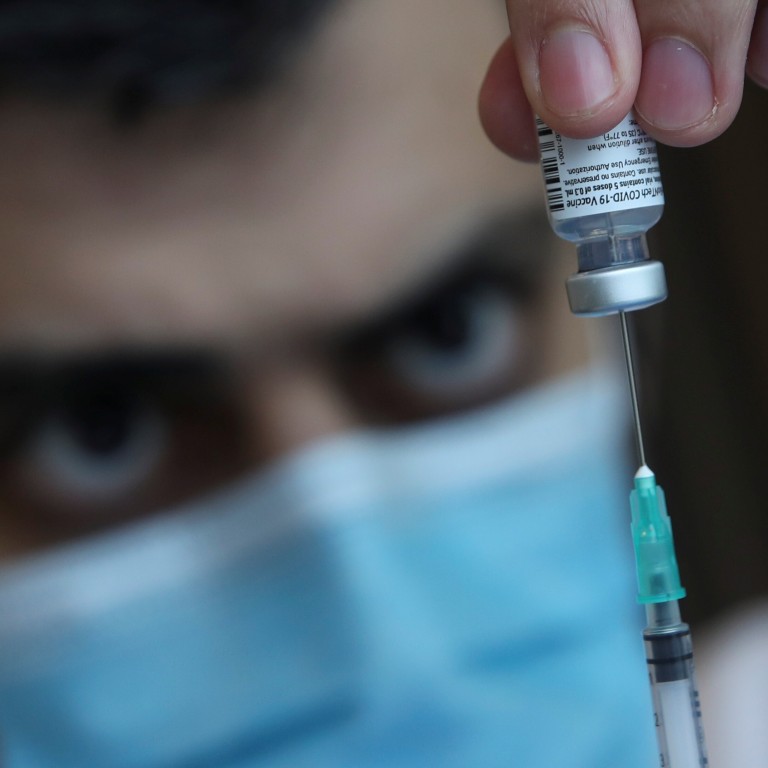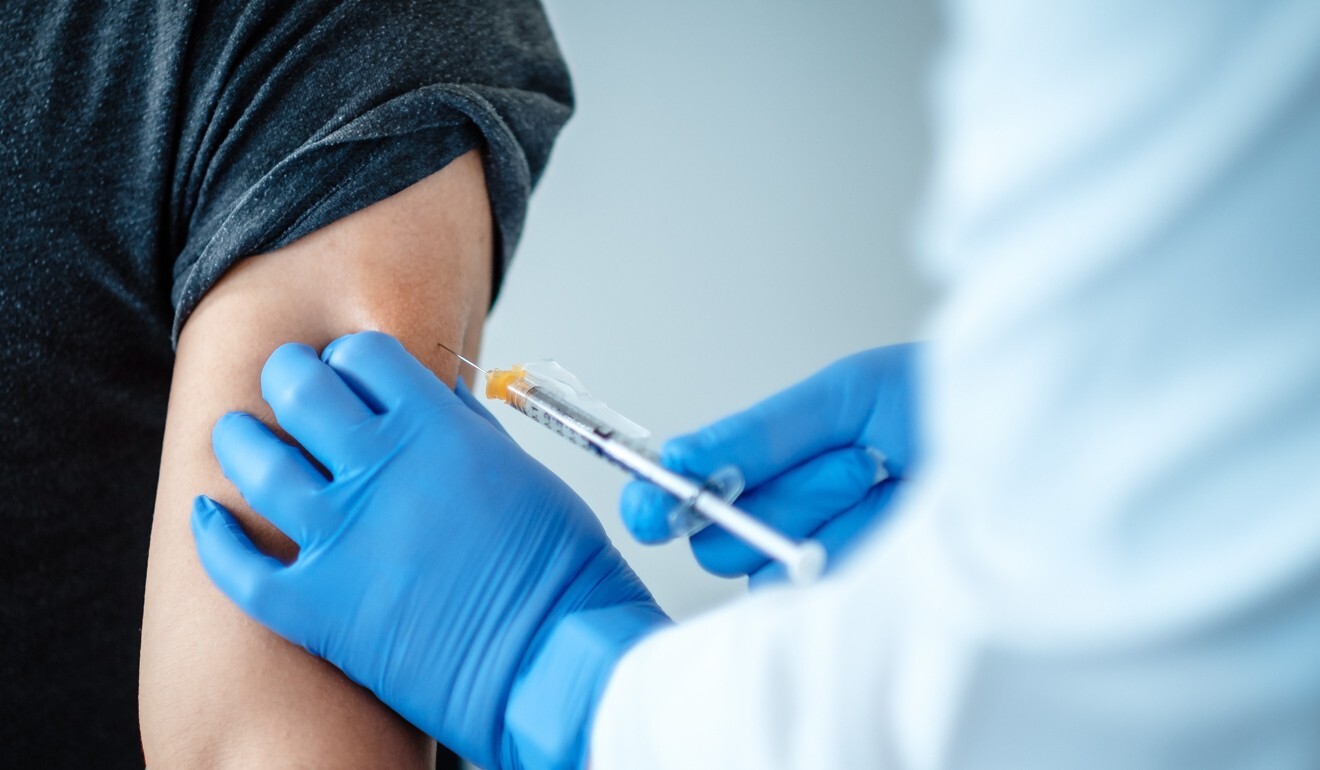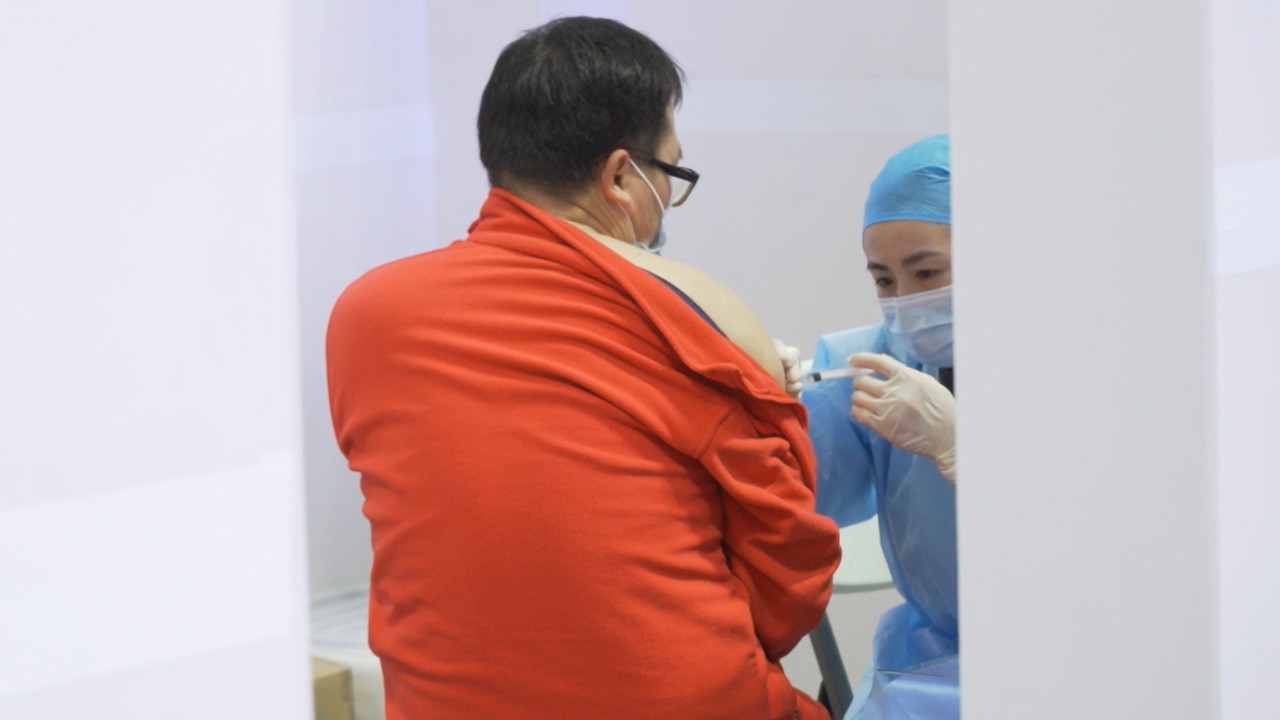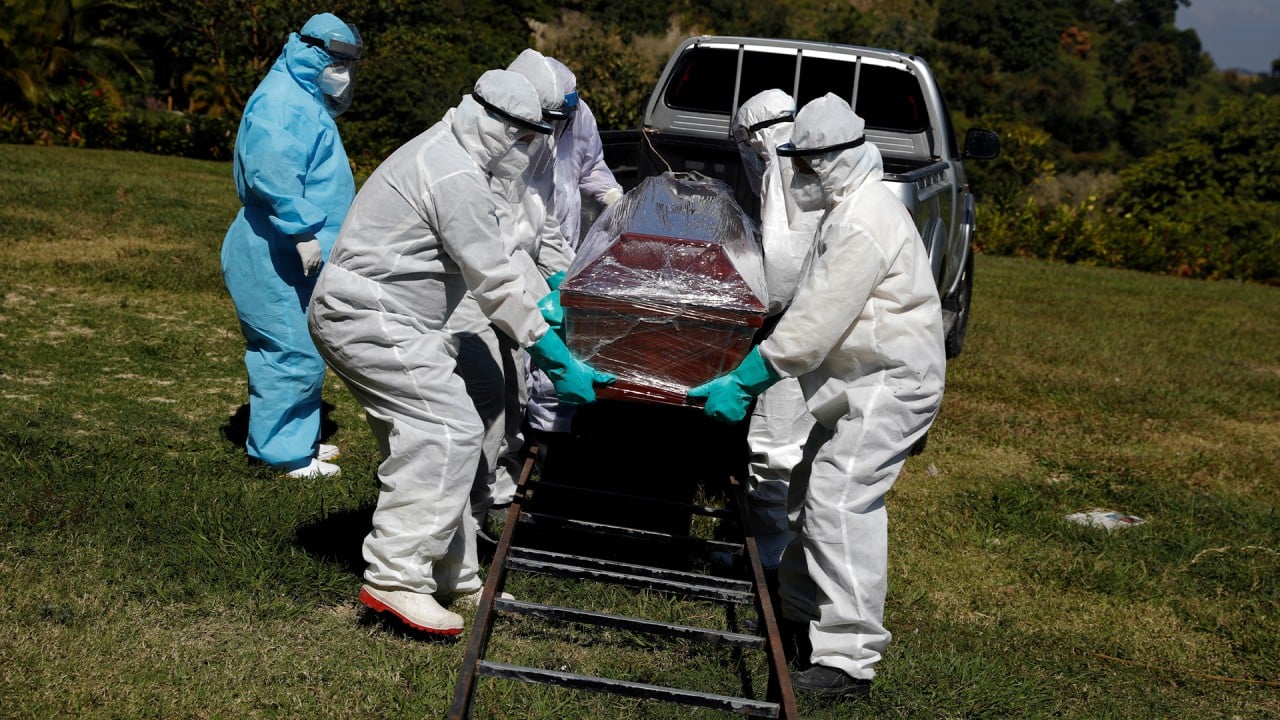
Coronavirus mutations pose challenge to vaccine makers
- Studies send mixed messages whether the Pfizer-BioNTech vaccine will be able to tackle the variant that emerged in Britain
- New strains of the virus add to challenge of fighting Covid-19
The spread of the variant – identified as B117 – across the globe has raised concerns that current vaccines, which are based on the original strain identified in Wuhan, may not work on mutations.
The emergence of these new strains has spurred scientists into looking at their behaviour and assessing whether they would compromise existing vaccines.
One study conducted by Cambridge and other British universities examined 28 elderly people who have been given the vaccine.
The coronavirus codes its genes with single-stranded ribonucleic acid (RNA), a relatively unstable molecule prone to mutations. Many RNA viruses, such as influenza and HIV, change their genes at a faster rate than vaccine development.
Sars-CoV-2, the virus causing Covid-19, appears to be relatively stable, but there is concern about how long that will last.
Chile approves China’s CoronaVac Covid-19 vaccine
“The virus has continued to evolve to optimise its infectivity/transmissibility and to evade drug and immune control,” said Professor Ravindra Gupta, the lead author of the study from the Cambridge Institute for Therapeutic Immunology and Infectious Diseases.
Gupta and colleagues collected blood samples to see how their antibodies interact with a pseudovirus of the B117.
While 28 patients took part, nearly a third of them were not counted in the study, posted on medrxiv.org last Wednesday, because the amount of antibodies generated after vaccination was too low.

These antibodies were produced by the immune system about three weeks after the first dose of the Pfizer-BioNTech vaccine, and they were supposed to neutralise the virus by binding to the spike proteins on the viral envelope.
Gupta and his team found a four-fold drop in the potency of the vaccine when challenged by the B117 mutant virus. In the worst case involving a patient in his 70s, neutralisation of the virus required six times as many antibodies compared with the original version.
The pseudovirus carried eight typical changes of genes that had been found on the B117 variant, and some of these mutations might have prevented the antibodies binding to the viral spikes, according to the researchers.
Meanwhile, BioNTech and Pfizer used a similar pseudovirus to test the antibodies from volunteers in their vaccine trials. About two third of the samples showed decreased neutralisation to the mutant, but the others showed higher efficacy.
15 million people given Covid-19 vaccines in China as Spring Festival nears
In a paper published in bioRxiv.org at about the same time as the Cambridge study, the drug companies said that in general, these changes could be ignored.
It is “likely that Covid-19 caused by the UK virus variant will also be prevented by immunisation” with their vaccine, the companies said in a press release published on Wednesday.
Neither study has been peer-reviewed.
A researcher studying coronavirus antibodies at Fudan University in Shanghai said that the conflicting results from these two studies were not at all surprising, because both were based on a small number of samples.
The Pfizer-BioNTech experiment involved 16 volunteers, a number “way too small to provide any statistically meaningful results,” said the Fudan researcher who requested not to be named due to the sensitivity of the issue.

01:44
Shanghai gives high-risk groups Covid-19 vaccines
Professor Benjamin Neuman, a virologist with Texas A&M University, said the results might not fully capture what happened inside the human body.
Besides antibodies, the human immune system also has other weapons such as living cells that could help stop a new infection.
The cells that produce antibodies, for instance, could “undergo a constant editing process that can turn an almost effective antibody into an effective antibody,” Neuman said.
The conflicting results could be a “best case-worst case scenario”, according to Neuman.
“Both of the studies tested a relatively small number of samples, so I would caution against over-interpreting the data … but the vaccines that we are using should still be effective against the new strains,” he added.
In the UK and many other countries, the B117 variant is causing outbreaks more severe than the first wave last year.

01:59
Worldwide coronavirus death toll nears 2 million
The mutation could be 50 per cent more infectious than earlier strains, and some researchers believe it might have occurred among patients with immune diseases such as Aids, or emerged under the pressure of massive use of antiviral drugs such as Remdesivir or antibody therapeutics.
The discovery of 501Y.V2 in South Africa added more concern to the research community’s worries because the strain seemed to have first appeared in communities where herd immunity was thought to have established during the first wave of infection.
One calculation by Alastair Grant, a professor of ecology with the University of East Anglia in Norwich, suggested the Pfizer-BioNTech vaccine, which has a 95 per cent efficacy rate, would require more than 80 per cent of the population to receive two doses to achieve herd immunity. In comparison, dealing with the older variants of the virus would only require 65 per cent vaccination coverage.
Vaccines with lower protection rates, including those developed in Britain and China, might not generate herd immunity at all, according to Grant.
BioNTech and Pfizer are confident they can beat the mutation even if it eventually makes their current product useless. Their vaccine uses messenger RNA to induce an immune response, and it can be quickly redesigned to generate new antibodies targeting the mutation.
Is China ready for the mRNA coronavirus vaccine revolution?
The drug companies believe this new mRNA technology can shorten the development process of a new vaccine from years to a few weeks.
So far researchers still know very little about the nature of this new variant.
The increasing mutations also threaten the reliability of testing, which some countries, including China, have used heavily to suppress outbreaks.

